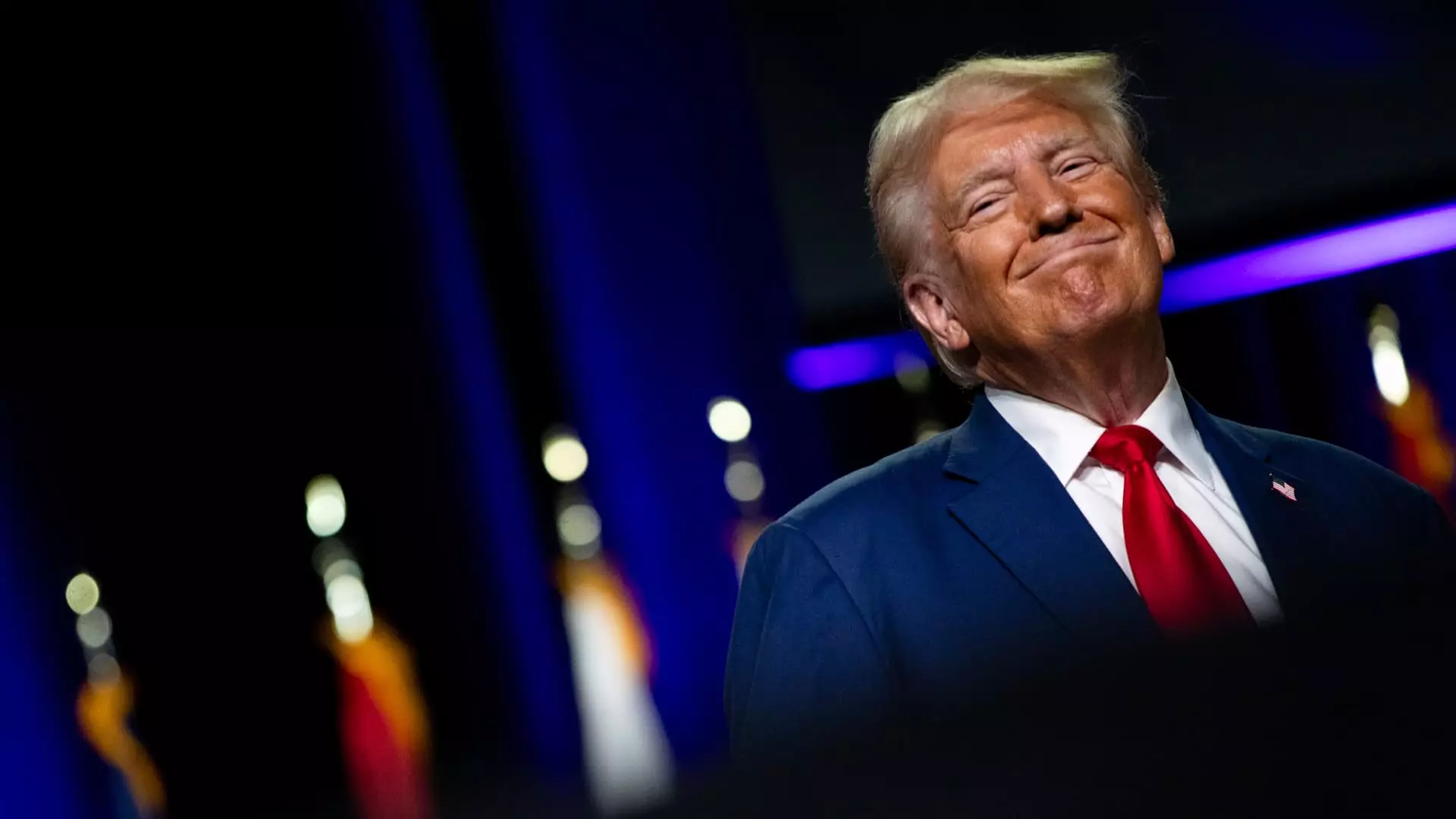The intertwining relationships between major technology executives and political figures have long been a point of scrutiny and speculation, particularly during tumultuous election cycles. As Donald Trump prepares for another term, the dynamics amongst tech moguls like Mark Zuckerberg, Jeff Bezos, and Sam Altman reveal an intricate web of alliances and rivalries that could significantly shape the regulatory landscape of the tech industry.
Past Conflicts and Future Alliances
Mark Zuckerberg, CEO of Meta, and Jeff Bezos, founder of Amazon, have not historically been aligned with Trump’s agenda. Their past interactions are characterized by public critique and conflict, especially during Trump’s first term, when he heavily criticized social media platforms for allegedly mistreating conservative voices. Despite this antagonism, recent announcements indicate a strategic pivot. Altman plans a generous personal donation of $1 million to Trump’s inauguration fund, stating, “President Trump will lead our country into the age of AI, and I am eager to support his efforts to ensure America stays ahead.” This sudden willingness to collaborate raises questions about the motivations behind these tech leaders’ contributions, especially when they navigate a complicated legacy of public criticism from Trump.
Meta’s $1 million donation closely follows Zuckerberg’s controversial private dinner with Trump at Mar-a-Lago, suggesting a possible reconciliation or, perhaps more cynically, a calculated move to secure favor with an incoming administration that has historically viewed Big Tech with skepticism. Similarly, reports indicate that Amazon is also in line to donate $1 million, aligning itself with the new regime despite past grievances.
Trump’s administration was marked by vitriol directed at major tech companies, charging them with anti-competitive practices and bias against conservatives. His nomination of Gail Slater to lead the Department of Justice’s antitrust division underscores a renewed focus on regulating the tech industry. Trump’s own words convey a clarification of intent: “Big Tech has run wild for years, stifling competition.” Such rhetoric from the president indicates an aggressive approach to antitrust enforcement that could place the likes of Meta, Amazon, and others under heavy scrutiny.
This history of animosity complicates the motivations behind the recent donations. It begs the question of whether these companies are genuinely pivoting to support Trump’s agenda or simply attempting to dodge regulatory bullets. Bezos, once a vocal critic of Trump, expressed a desire for a more amicable regulatory environment, reflecting a pragmatic approach to political relations. At a recent event, he remarked on his optimism for reduced regulation under Trump, marking a stark contrast to his previously combative stance.
The battle between Sam Altman and Elon Musk adds another layer of complexity to the tech landscape as the two co-founders of OpenAI have recently become rivals. Musk’s investment in Trump’s campaign and projected involvement in government operations concerning AI regulation raises eyebrows. Altman is poised to have to navigate these tides carefully as Musk’s influence on the technology and AI sectors could skew regulatory practices in favor of his business interests. The legal confrontation between Musk and OpenAI illustrates a fractured relationship born from diverging visions for the future of artificial intelligence.
Public commentary from Musk about generating a “Department of Government Efficiency” invites concern over potential conflicts of interest in policymaking creations that could disproportionately benefit Musk’s ventures. It could lead to regulatory environments that favor proprietary technologies over collaborative and holistic approaches to AI that respect diverse stakeholder interests.
The Broader Tech-Political Nexus
The potential for policy change underscores a critical need for transparency in the relationship between technology leaders and political figures. As Trump returns to the White House, tech sector leaders, including Tim Cook at Apple and Satya Nadella at Microsoft, seem eager to align with the administration, as evidenced by their public congratulatory messages following Trump’s latest electoral win. This trend raises ethical questions about the political motivations behind corporate donations and whether these kinds of gestures lead to favorable policymaking or dictate a more oligarchic governance structure.
As we stand on the precipice of another tumultuous political chapter, the alliances between technology executives and political players warrant close scrutiny. With ambitions to harness AI for national advantage intertwined with personal political aspirations, the coming months will reveal whether these tech titans are strategic partners in shaping America’s future or if they merely serve as pawns in a broader game of political chess. The balance between innovation and regulation hangs precariously in the balance, and how this narrative unfolds will be of tremendous import not just for the tech industry but for society at large.

